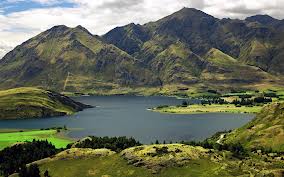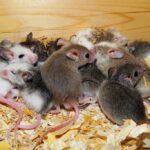Visionaries in Iceland have come up with a sustainable, blueprint aimed at creating a radical new alternative to aggressive consumerism and burgeoning debt that is crippling society.
After the banking crash that almost crippled the country, ordinary people have teamed up with scientists, economists, farmers and other visionaries to put forward ideas and solutions which would increase self-sufficiency and support local communities.
There are many who recognise the problems of rising debt, homelessness, crime and dependence on multinational conglomerates who are reducing the quality of everything from food to livelihood, but there are few who have helped to put forward their own solutions.
But Guðjón Már Guðjónsson, is one such person. He founded the Ministry of Ideas – a grassroots Icelandic movement that allows ordinary members of the public to discuss ideas to improve industry, education, technology, economics and society.
Guðjónsson described the organisation as “the heartbeat” of grassroots movements which are hoping to inspire change in the country.
“We can visualise what we’d like Iceland to be in 20 years or 50 years without the involvement of big corporations or political parties. When we vote, we can vote for politicians we feel, as people of the country, are best fitted to fulfil this vision,” Guðjónsson said.
By embracing sustainable farming, business and innovation, independent groups in the country are hoping to come up with their own solutions to the problems faced by Icelanders rather than allowing the politicians with their vested interests and corporate lobby groups to do it for them.
The organisation has a strong focus on green energy projects and organic farming. They also make use of technological innovations to help them achieve their goals.
One such invention is research into how to use geothermal energy to split hydrogen from water. This could make Iceland entirely self-sufficient in energy terms and 100 per cent powered by renewable energy.
Organic greenhouse agriculture is another phenomenon that has allowed people to produce tomatoes, cucumbers and peppers despite plunging temperatures.
The idea is to encourage people to buy and eat local to reduce dependence on major supermarkets and corporations.
Eymundur Magnússon runs an organic farm in the country and said there was “no way back” once Icelanders had experienced the full benefits of turning their attentions to a more sustainable model of living.
Magnússon commented in an interview with Positive News: “We’re making local groups in all parts of Iceland, like the Slow Food idea, to eat locally, eat seasonally, so it’s going to save a lot of energy and it’s going to reduce the pollutions caused by all this transport.
“For me, from organic there’s no way back. When you see the soil, when you see what you’re growing, when you taste how much sweeter and better it is, there’s no way back. This is the natural way to do it.”
Currently Iceland is working alongside countries in Asia, Africa, Europe and South America to put forward ideas on developing clean economies and promote sustainable living.
Another organisation in the country dedicated to change is ALDA, the association for sustainability and democracy.
ALDA work with various protest groups across the country and are involved in the constitutional discussions that came about as a result of the Icelandic protests in the country, which was covered extensively by the Akashic Times.
If the success and commitment behind these projects continue, it could well serve as a blueprint for other economies across the globe.
Akashic Times is the UK’s only online, fully independent not-for-profit weekly newspaper that brings you real news from across the globe.
If you want to keep ahead of what is really going on in the world, subscribe to our newspaper via the subscribe button and join our Facebook & Twitter pages. Subscription is completely free ofcourse


















One Comment